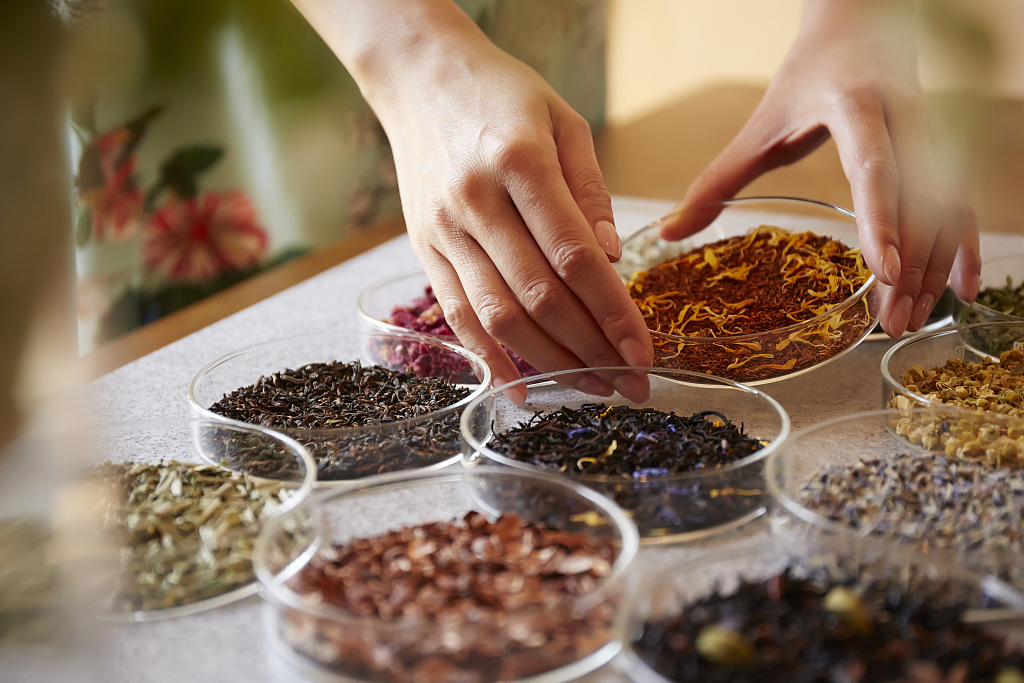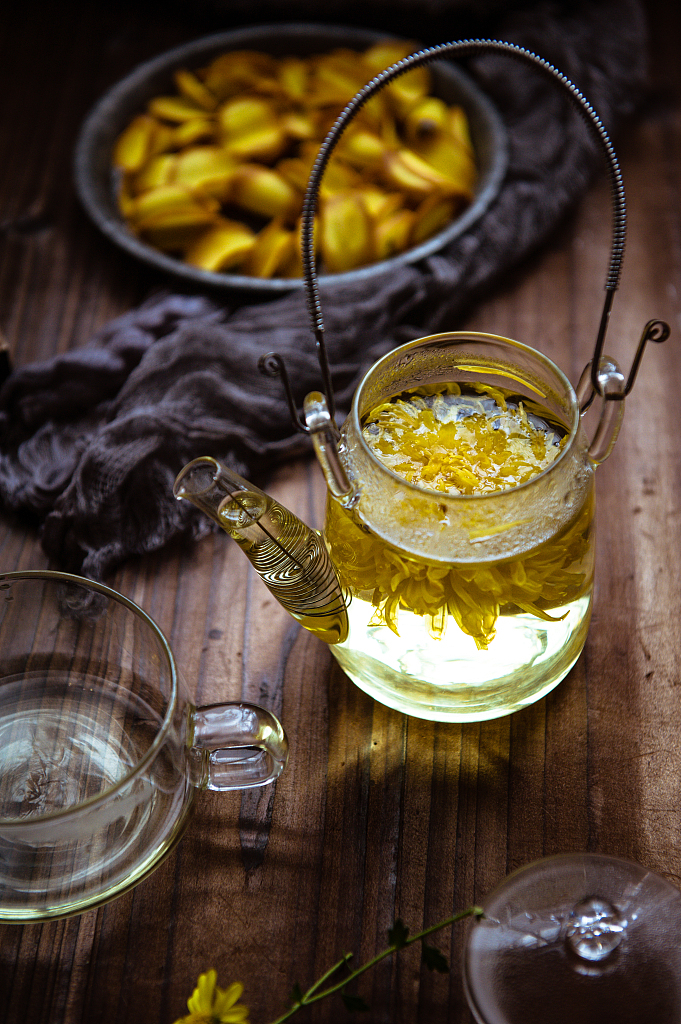Spring is here, and a cup of blooming spring tea is not only a visual experience but can also help sweep away what's left from the winter weather.
This is the season to drink tea. Chinese medicine believes that drinking tea in the spring can promote the growth of Yang qi.
Many people feel sleepy and fatigued in the spring, so this is the best time to drink scented flower tea, because it is sweet and cool. Its strong tea fragrance can promote the Yang qi of the human body to rise, dissipate the coldness that accumulated during the winter in the human body. Feeling refreshed naturally alleviates the effects of that spring sleepiness.
There are many kinds of scented flower tea, but its medicinal value is not the same.

Different kinds of flower tea./VCG
Different kinds of flower tea./VCG
Rose tea:
Rose tea is a favorite among many women. It is believed that drinking rose tea drink beautifies a person. In fact, rose tea does have beauty benefits since it helps improve sleep, boost mood, and helps with depression.
Lavender tea:
Lavender is a fragrant purple-blue flower that grows in the Mediterranean region. Lavender has a strong aroma and calming effect. Add lavender, mint leaves, honey, and simmer for five minutes, and a cup of lavender tea is ready.
Lavender tea helps calm the nerves and relieves anxiety, it also can treat initial cold cough, ease headaches gradually, and improve the health of the digestive system.
Chrysanthemum tea:
Chrysanthemum tea originated in China, where it has more than 2,500 years of cultivation history. It has more than 3,000 varieties and is the mostly planted in China. The plantations include medicinal chrysanthemum and tea chrysanthemum.
Drinking chrysanthemum tea is good for the liver and eye.

Jasmine tea:
Jasmine tea is one of the top ten most famous teas in China. It is taken from the blooming jasmine in the spring and mixed with the tea leaves, it has the fragrance of the spring flowers and the freshness of the tea leaves. The Chinese people have been drinking jasmine tea for more than 1,000 years. Originating in China's Fujian province, jasmine tea is a bulk product of scented tea with vast production areas, high yield and rich varieties.
Jasmine tea is high in antioxidants, and combats the free radicals formed in the body. For this reason, it's helpful in slowing down the aging process. It also helps bodies create good bacteria that helps with digestion. It has also been known to reduce cholesterol and bad fats within the body.
(Cover image designer: Du Chenxin.)